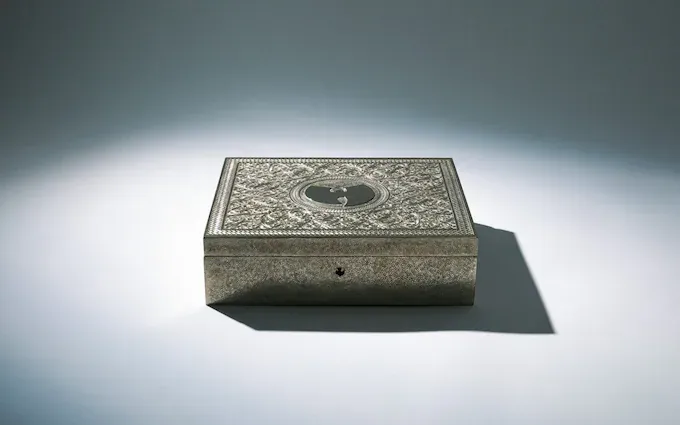Wu-Tang Clan's 88-Year-Sealed Album Turned NFT: A New Chapter in Music Ownership
Explore how Wu-Tang Clan's Once Upon a Time in Shaolin transforms into an NFT, revolutionizing music ownership and digital distribution.

Since its inception, The Wu-Tang Clan's Once Upon a Time in Shaolin has been a source of fascination and controversy. Conceived as a protest against the devaluation of music in the digital age, the album's journey has been tumultuous, culminating in its transformation into a non-fungible token (NFT). This bold move offers a new perspective on music ownership and distribution, pushing the boundaries of how we interact with art in the digital era.
The Album's Origins
Recorded in secret between 2006 and 2013, Once Upon a Time in Shaolin features contributions from all surviving Wu-Tang Clan members and guest appearances by artists like Cher.
Pressed onto a single physical copy and housed in an ornate silver box, the album was sold at auction in 2015 to controversial pharmaceutical executive Martin Shkreli for $2 million. The sale stipulated that the album could not be commercially exploited until 2103, a period of 88 years symbolically significant to the group.
Shkreli's Controversial Ownership
Shkreli's ownership of the album was marked by scandal. After his 2017 conviction for securities fraud, the U.S. government seized the album as part of a $7.4 million judgment. In 2021, it was sold to PleasrDAO, a digital art collective, for $4.75 million, marking a new chapter in the album's storied history.
The NFT Transformation
PleasrDAO has taken a revolutionary step by transforming Once Upon a Time in Shaolin into an NFT. This digital version of the album is encrypted and available for purchase at $1 per NFT, with each purchase reducing the album's release date by 88 seconds. This innovative approach theoretically allows the public to access the full album sooner than the original 2103 release date.
The Mechanics of the NFT Sale
The NFTs are hosted on Base, Coinbase’s Ethereum layer-2 scaling network, and can be purchased using credit cards or Apple Pay.
Buyers receive a five-minute sampler of the album, and PleasrDAO promises more music will be released as the countdown progresses. PleasrDAO has partnered with Privy, Crossmint, and Holograph to distribute these NFTs.
Legal and Ethical Considerations
Transforming the album into an NFT raises several legal and ethical questions. The original agreement prohibited commercial exploitation of the album until 2103.
However, PleasrDAO claims to have acquired the rights to exploit 16 of the 31 tracks on the album commercially. They have also filed a lawsuit against Shkreli for allegedly retaining and distributing copies of the album, seeking to enforce the original agreement's terms.
Cultural Impact and Future Implications
The NFT sale of Once Upon a Time in Shaolin is more than a commercial venture; it is a statement about the value of music in the digital age. PleasrDAO aims to bring blockchain technology into the cultural mainstream and redefine music ownership by turning the album into an NFT.
This move aligns with the Wu-Tang Clan's original vision of challenging music's commodification and restoring its value as a form of art.
Conclusion
The saga of Once Upon a Time in Shaolin continues to evolve, reflecting broader music industry trends and digital technology trends. As the album transitions from a physical artefact to a digital collectable, it raises important questions about the future of music ownership and the role of NFTs in the cultural landscape.
Whether this experiment will succeed in bringing the album to a wider audience remains to be seen, but it undoubtedly marks a significant moment in the ongoing debate about the value of music in the digital age.




